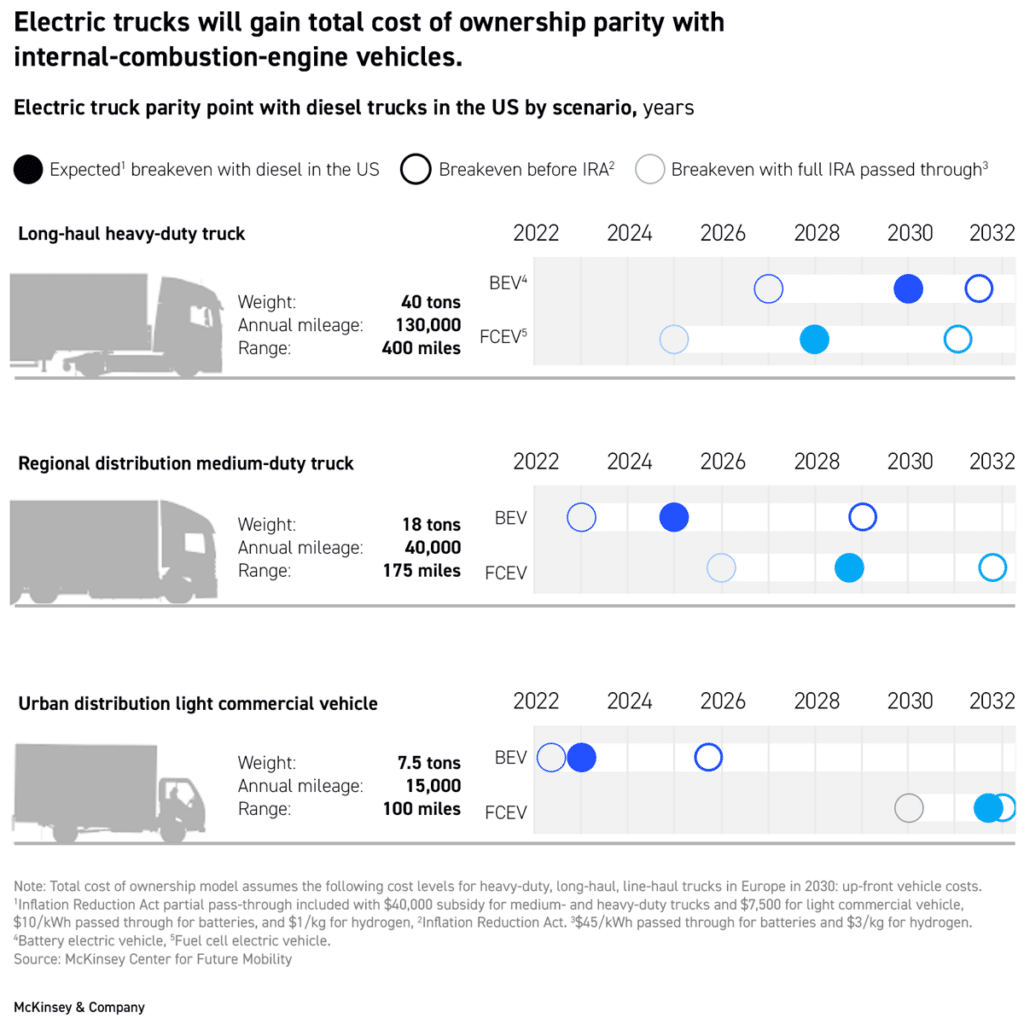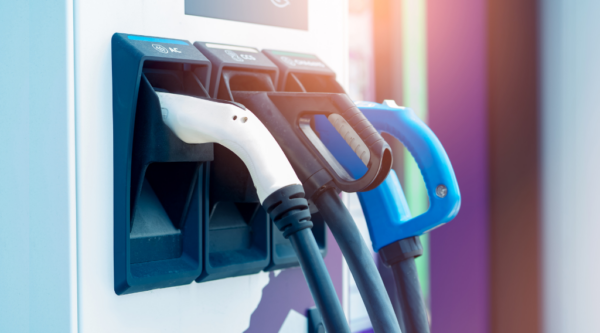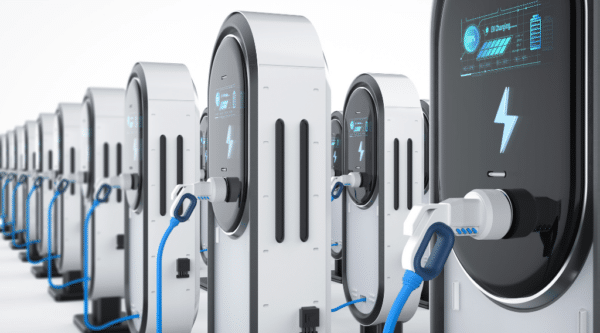Challenging the High-Cost Myth in Fleet Electrification
Fleet managers often perceive high upfront costs as a significant barrier to transitioning towards electric vehicles (EVs). However, a deeper analysis into the total cost of ownership (TCO) reveals that, over time, EVs prove to be more cost-effective than traditional gas-powered fleets.
McKinsey’s recent forecast suggests a notable shift in the economic dynamics of fleet operations. By 2025, the TCO for battery electric light commercial vehicles (LCV) and medium-duty trucks (MDT) is projected to be lower than their internal combustion engine (ICE) counterparts. Heavy-duty electric trucks (HDT) are expected to reach cost parity by 2030.

Decoding Total Cost of Ownership
The reduction in the TCO of EV fleets is attributed to a blend of financial incentives, decreased operational costs, and emerging optimization avenues.
1. Incentives Mitigate Initial Higher Costs
Despite the higher initial prices of electric MDTs and HDTs compared to fossil fuel-powered models, incentives substantially alleviate these costs. The Inflation Reduction Act’s Qualified Commercial Clean Vehicle tax credit offers up to $40,000 for new electric MDT or HDT purchases. Additional state-level incentives, notably in states like California, further diminish the upfront investment in EVs.
2. EVs Have Lower “Fuel” Costs
Contrary to popular belief, EV charging is generally more affordable than fossil fuel refilling. Electricity not only costs less than diesel but also exhibits less price volatility. Coupled with the higher energy efficiency of EVs, these factors contribute to significant fuel cost reductions.
3. Reduced Maintenance Expenses with EVs
EVs inherently require less maintenance than ICE vehicles, owing to their simpler mechanical design. Costs associated with oil changes and other ICE-specific maintenance are eliminated, further lowering fleet operational expenses.
4. Optimize with Charging-as-a-Service (CaaS) Providers
Collaborating with CaaS providers, such as Electrada, presents multiple avenues for cost optimization:
- Predictable pricing models from CaaS providers shield fleets from volatile energy costs.
- Many CaaS providers like Electrada absorb 100% of the initial costs of charging infrastructure and equipment.
- CaaS services include comprehensive optimization of charging facilities, from equipment selection to maintenance, thereby enhancing cost efficiency.
- Advanced fleet management and monitoring tools provided by CaaS firms enable real-time operational data analysis, further optimizing fleet operations.
Conclusion: A Cost-Effective Shift to EV Fleets
The combination of financial incentives, lowered operational costs, and new optimization strategies effectively debunks the misconception of EV fleet ownership being financially burdensome. Electrada’s 360 CaaS offers a streamlined, reliable, and economical solution for reducing the TCO of EV fleets. Get in touch to discover Electrada we can facilitate your transition to a more cost-effective EV fleet.



